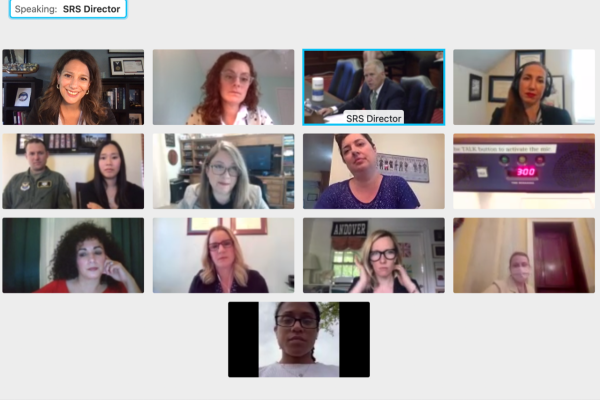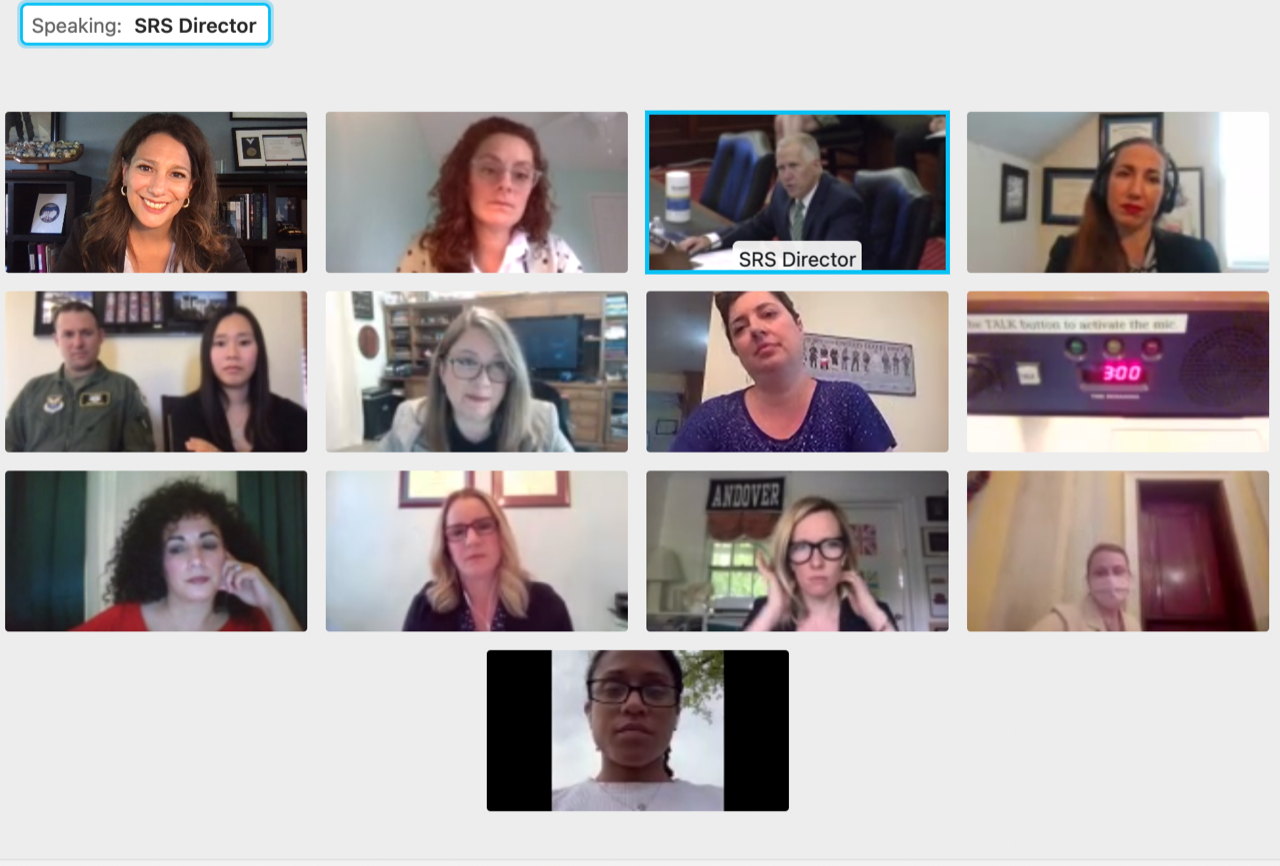
EFMP Roundtable – EFMP Coalition’s Seat at the Table
| EFMP in the News, In the News
The Exceptional Family Member Program (EFMP) has some new congressional advocates! The
Senate Armed Service Committee Military Personnel Subcommittee hosted an EFMP Roundtable
to hear directly from military families about their experiences with this beleaguered program and
how they can help fix it.

On May 19th, 2021, Senator Thom Tillis (R-N.C.), Senator Kirsten Gillibrand (D-N.Y.) and Senator
Elizabeth Warren (D-M.A.) hosted military families and nonprofit leaders to discuss how Congress
can best support military families with dependents who have special medical and/or educational
needs. This conversation has been on the forefront of the minds of military families and the
Department of Defense (DOD) as they seek to fortify family readiness plans impacted by the
COVID-19 pandemic.
Concerns presented by the Roundtable members focused on issues families face after permanent
change of station (PCS) moves. These included gaps in special education services and medical
care and the impact changes to TRICARE coverage has on families. The Committee was also
interested to hear what families are experiencing on the ground versus what has been promised by
enacted legislation embedded in the 2021 National Defense Authorization Act (NDAA).
“I am thankful for the opportunity to share our personal EFMP experience at the Senate Armed
Service Committee Military Personnel Subcommittee,” said Michelle Norman, Executive Director
of Partners in PROMISE. According to Norman the Subcommittee focused on solutions for
supporting military families with Individualized Education Programs (IEPs) during military
moves/transitions as well as “providing more accountability and transparency on the service
branches EFMP standardization outlined in the NDAA. We look forward to working with Sens.
Gillibrand and Tillis and the rest of the subcommittee on future EFMP initiatives.”
EFMP Roundtable Coalition Representation
“Nothing about us without us” is a common phrase used in disability circles. Historically those
with special needs have been left out of the conversation. Because many who are being discussed
in these calls are minors they were represented by military special needs parents.
The call featured five representatives from the newly formed EFMP Coalition. The Coalition, founded
by Partners in PROMISE, also includes the Exceptional Families of the Military (EFM), Military Kids –
Special Education Alliance (MKSEA), Military Special Needs Network (MSNN) and the Modern
Military Association of America (MMAA). Their presence was a significant step forward in holding
inclusive conversations.
Each family member not only brought their own stories to the table, but the collective stories of the
organizations they represent. “Even though the federal government support of public education
began with military kids, the Every Students Succeeds Act has left military students behind,” said
Josephine Amato from MKSEA. “And Title VII has none of protections and accountability measures
similar to those that exist for other highly mobile students such as migrant or homeless students.”
EFMP Coalition members were energized by the opportunity to provide a voice for EFMP families.
“The common issues regarding EFMP that we hear about daily from our families was able to be
shared through vignettes” said Rebecca Emerson, Executive Director of EFM. “These stories
illustrated the truth present in the lives of EFMP families in front of the senators that can have a
direct impact on change and improvement within DOD EFMP.”
“They understand the sacrifices that military families endure and that little attention is paid to those
who have exceptional needs” said Norman. “They wanted to hear about interactions with medical
providers, TRICARE, schools, teachers, EFMP staff, and DOD leadership.”
What could have been focused on the negative was decidedly optimistic. With the entire group
looking to find areas of success so that they can be replicated to the benefit of family members and
the DOD.





Please suggest to fix Army EFMP respite. The process to get a certified provider is too long. The background check turnaround time is unacceptable. The recruitment done by SRI is minimal. Families are left to find their own providers only to be held up by background check turn around times. Air Force and Navy EFMP respite programs do not have this problem. Thank you for listening. I would be happy to share with you more about my almost 20 years of experience with this process.
Hi Kelli, thank you for your feedback on EFMP and background check times for Respite Care. We would love to hear more of your story if you want to share. Please email info@thepromiseact.org with your preferred email address and we can get something scheduled!